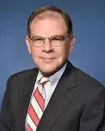On May 20, the House Subcommittee on Communications and Technology met in an open markup session to consider several proposed bills to reform the rulemaking process at the Federal Communications Commission. Specifically, Subcommittee members offered numerous bills targeting what they referred to in a published memo as a "variety of process failures" at the FCC.
The FCC derives its rulemaking authority from two sources: the Communications Act of 1934, 47 U.S.C. §§ 151, et seq., which establishes the FCC's structure, responsibilities, and powers; and the Administrative Procedure Act of 1946, 5 U.S.C. §§ 151, et seq., which dictates how agencies such as the FCC issue regulations. The FCC adopts rules in one of three ways: (1) through public monthly meetings; (2) "on circulation" between such meetings (in which rules are voted on via a computer system); or (3) by delegated authority to individual members for routine and ministerial matters.
Some bills the Subcommittee is considering are:
- The FCC Process Reform Act, authored by Rep. Greg Walden (D-Ore.), Rep. Anna Eschoo (D-Calif.), and Rep. Adam Kinzinger (R-Ill.). The Act aims to increase transparency and efficiency at the Commission by requiring the FCC to, for example, set up minimum comment and reply comment periods for rulemaking proceedings;
- A draft bill that would require the FCC to publish changes to its internal rules on its website no later than twenty-four hours after adoption;
- A draft bill to require the FCC to identify and describe on its website which items are to be decided by delegated authority; and
- A draft bill to provide for a quarterly report on pending action requests by the FCC and pending congressional investigations of the FCC.
The Subcommittee also reviewed these bills during hearings on April 30 and May 15. According to their memo, the Subcommittee hopes these reforms can address discrete problems it sees at the FCC, such as "unexplained delays in disposition of matters, unequal access to information, unusual procedures, and the exercise of discretion on the part of FCC Chairmen."
The content of this article is intended to provide a general guide to the subject matter. Specialist advice should be sought about your specific circumstances.


